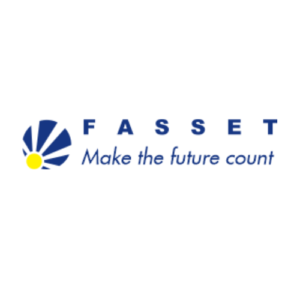Workplace Accreditationn
Workplace accreditation is a requirement for all employers, however of the sector, who wish to register learners on Fasset learnerships. The accreditation aims to verify the ability of the workplace to host a specific learnership Choosing a career is one of the most important decisions that you will make in your life.
Although most people make several career changes in their lifetime, the first career decision you make will have an impact on various aspects of your life. Criteria for accreditation include access to resources related to the learnership, the relevance of the work experience component to the qualification, and the structures in place to assure successful implementation and completion of the learnership.
Posted on February 5, 2024
Learnership Code: 01/Q010018/00/241/5
Here is the leanership from fasset and the learnerships in public sector analysis are nationally recognized qualifications designed by the Institute for Public Finance and Auditing (IPFA).
The IPFA learnerships in Public Sector Accounting have been designed specifically for learners who are planning on following a career as an Accounts Administrator or Accounting Technician and who recognize the significance of being affiliated with a professional body such as the IPFA that will provide them with the necessary skills to cope effectively with the demands of their changing environment.
Learnership Information
Learners requirements are:
- Candidates must have NQF Level 2 (Standard 8/Grade 10) Numeracy and Communication or above and experience a pre-enrollment assessment of basic numeracy and literacy skills.
- Applicants Learners should preferably: possess a Grade 12 (twelve) Certificate with Accounting, be employed in finance in the public sector.
Syllabus Theory
Component: This is the structured learning element of the learnership and comprises the following fundamental, core, and elective results:.
Learnership in Public Sector Accounting
Over and above the core results in the Level 4 Learnership, the Level 5 Learnership contains the following additional results:.
Fundamental Learning
- Credit Control (Level 4), Payroll (Level 4), Personal effectiveness in the work environment (Level 4) and Managing internal relations in the Workplace Manage external relationships
- Understand fundamental economic principles and Use information systems and computer technology effectively
Core Learning
- Financial Accounting, Asset Management, Trial Balance, Public Sector Financial Statements 2 and Implementing Risk Management Policy.
Core Learning
- Financial Management: Comprehending the theory of management accounting and Costing process and Budgetary control, Performance and Supply Chain management, Cash management, and credit control systems
- Utilize data systems and computer technology effectively
Electives
- Launching an internal audit and Project management
Work Functions
Accounts Administrator
The Accounts Administrator makes sure that the financial transactions are correctly recorded and administers the full range of processes that happen in a finance department. There is strong emphasis on ensuring compliance with Treasury and other regulations and establishing the accuracy of fundamental financial records. Accounting Technician 3
The Accounting Technician
has a supervisory role to play, supervising the work of accounting clerks and senior accounting clerks, as well as maintaining and reconciling financial accounting records and making sure that the transactions are processed in accordance with agreed procedures and authorities.
SEND APLLICATIONS TO:
Professional Body: Association of Accounting Technicians (AAT) (SA) Contact Person: Ayanda Dingaan Tel: (011) 621-6648 E-mail: ayandad@aatsa.org.za Web: info@aatsa.org.za


